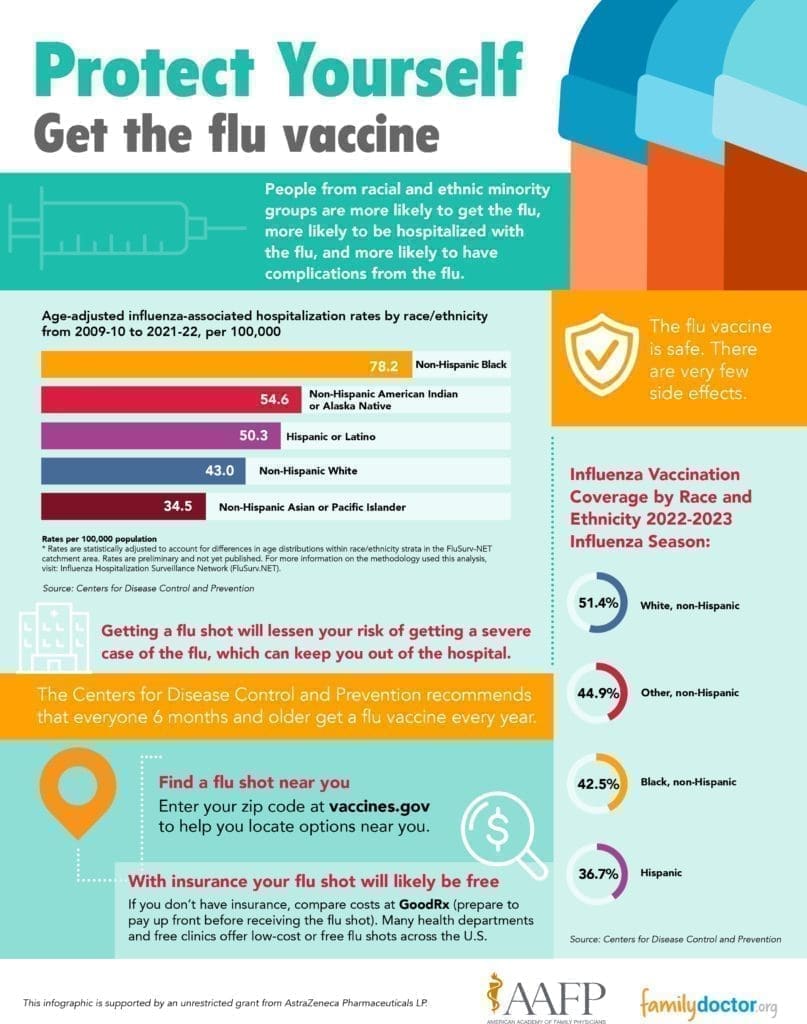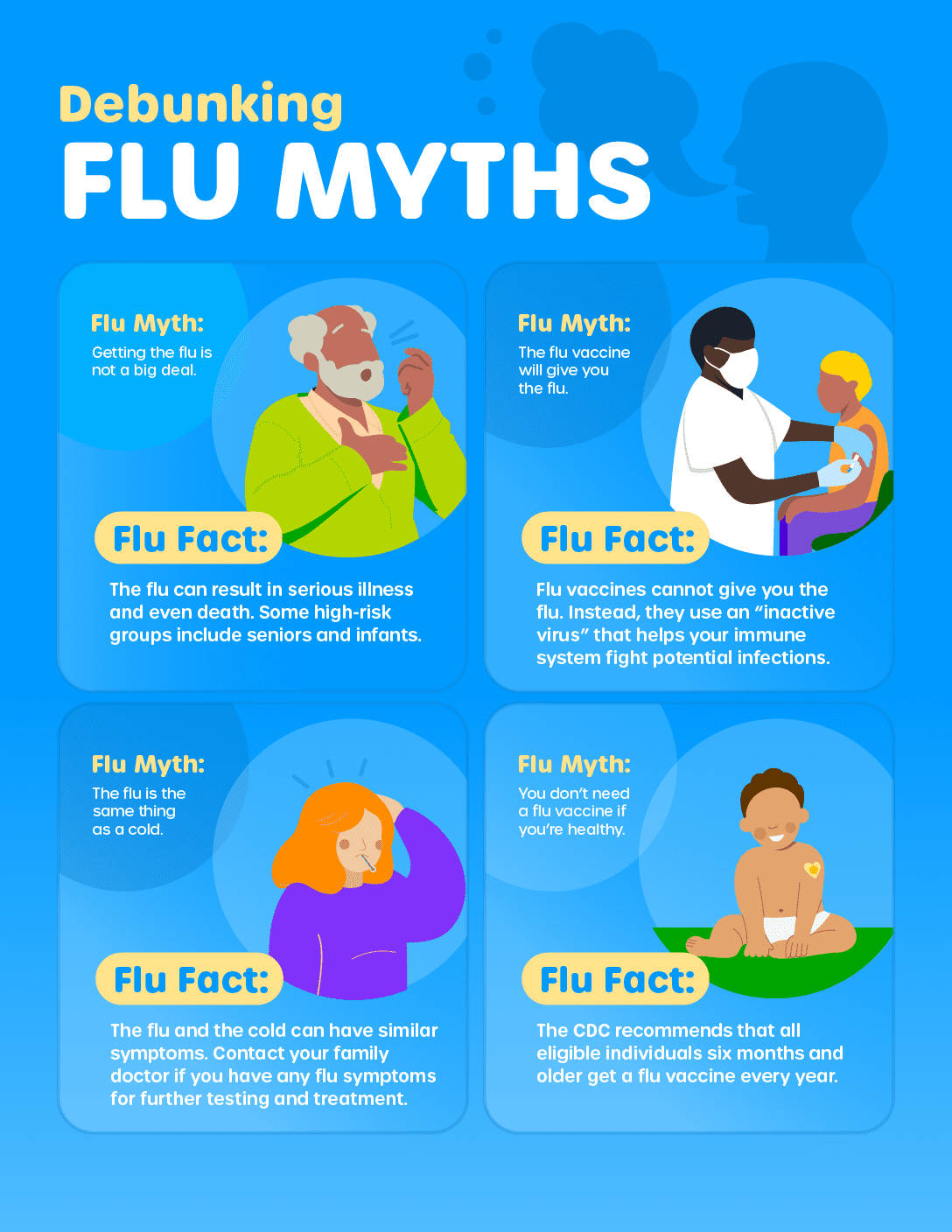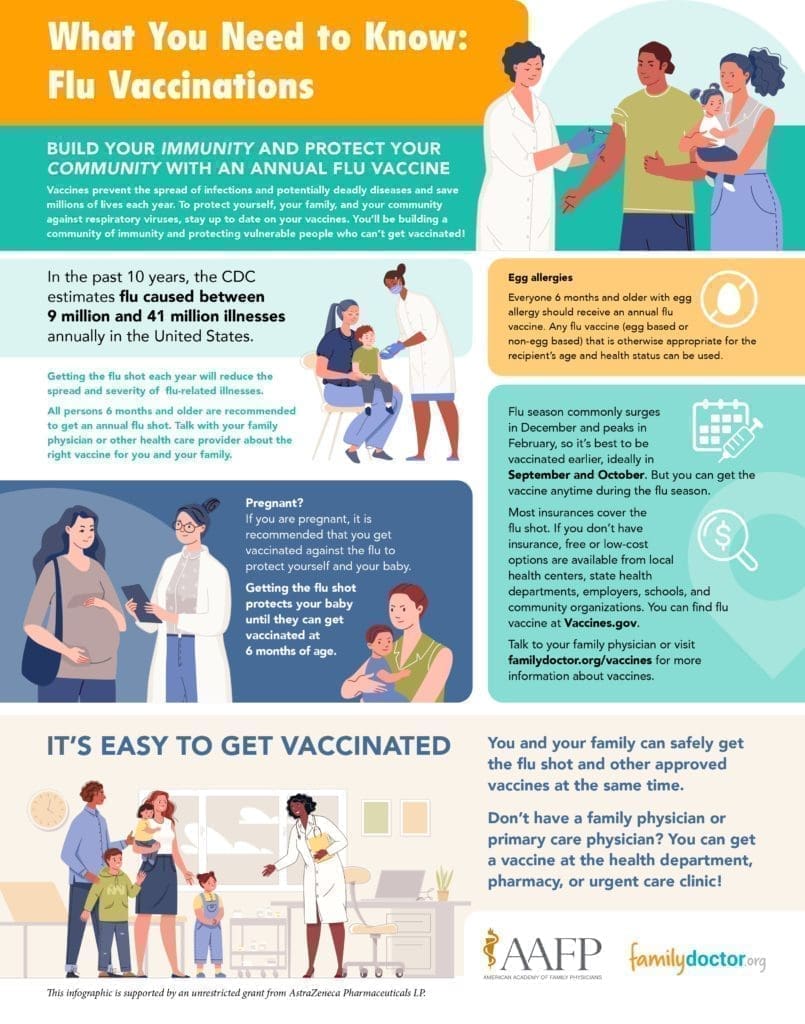Influenza
Influenza: A Brief Overview
Influenza (also called “the flu”) is a viral infection in the nose, throat, and lungs. About 10% to 20% of Americans get the flu each year. The flu may cause fever, a cough, a sore throat, a runny or stuffy nose, headaches, muscle aches, and tiredness. Most people feel better after 1 to 2 weeks. However, for some people, the flu leads to serious diseases, such as pneumonia and even death.
Influenza Essential Information

Colds and the Flu
Find out more about the flu including symptoms, causes, prevention and treatment options.

Flu Myths
The flu is something to take seriously. But it’s important to sort out fact from fiction to stay healthy.
Influenza Diagnosis

Do I Have COVID-19 or the Flu?
These two conditions share many similarities, but there are a few key differences to keep in mind.

Flu Symptoms vs. Cold Symptoms
The common cold and the flu share many similar symptoms, but they are two different conditions.
Influenza Risk Factors

Flu Complications Risk Greater for Minority Groups
People from racial and ethnic minority groups are more likely to be hospitalized when they have the flu, according to the Centers of Disease Control and Prevention (CDC).

Flu Risks and Chronic Conditions
Chronic health conditions such as asthma, diabetes, obesity and blood disorders can increase your risk of being hospitalized with influenza.
Influenza Prevention

Complete Guide to Flu Vaccines
The best weapon we have against the flu is to get a flu vaccine each year before flu season begins.

Flu Vaccine During Pregnancy
An influenza (flu) vaccine is the best way to protect yourself from the flu, even when you are pregnant.

Combat Cold and Flu Season
Cold and flu season often begins in October. There are several steps you can take to protect against illness.

Preventing the Flu
Good hygiene, boosting your immune system and annual vaccination are the best ways to avoid getting the flu.
Influenza At-A-Glance Guides



Additional Influenza Resources
Centers for Disease Control and Prevention: Key Facts About Influenza
Centers for Disease Control and Prevention: Seasonal Flu Shot
Centers for Disease Control and Prevention: Flu Vaccine Safety and Pregnancy
Centers for Disease Control and Prevention: Flu Disparities Among Racial and Ethnic Minority Groups










